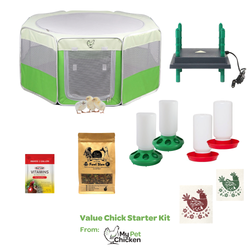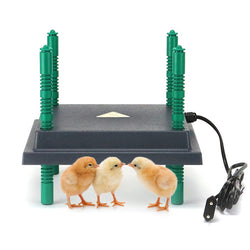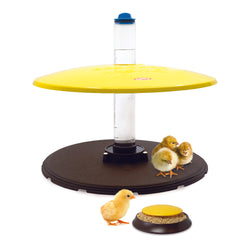How can I handle an aggressive goose?
Back to blog
Geese can make great pets, and thankfully, most geese do not exhibit aggressive behavior. Among those that do, it is usually confined to the breeding and nesting season in spring and early summer. Geese are generally excellent parents, and like any good parent, want to protect their offspring from potential threats. Thankfully, whether during breeding season or not, with proper management strategies, you can help your geese be less aggressive and you can learn to handle more contentious individuals effectively.

Sebastopol geese are among the least aggressive breeds.
General strategies for handling geese
First, never taunt or harass your geese, and do not allow children to do so, either. Waterfowl thrive in calm, quiet environments, but will learn to be aggressive if aggression is directed toward them. Work quietly and slowly among them, never making fast or threatening advances. It is likely wise to avoid overly-taming them as well, as some may lose their fear of humans altogether and begin to feel very comfortable challenging you. If one does move toward you aggressively, do not fight them or swat at them, since this can just make their fight instinct stronger. Also, do not run away, because this gives them more confidence, and they will likely chase you. Instead, stand still, and do not turn your back. Most of the time, they are "more bark than bite." When you provide the bird no stimulus to fight, they will usually calm down and retreat.
Sebastopol geese are among the least aggressive breeds.



